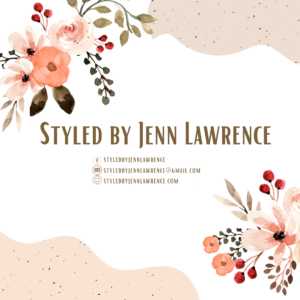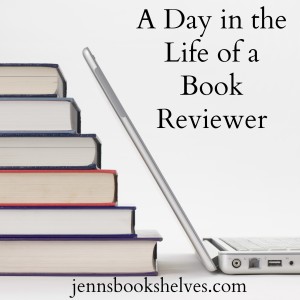Today, May 8th has been deemed Toni Morrison day to celebrate the publication of Morrison’s newest book, Home. After reading a review copy of home Home, I knew there was no way I could possibly review a novel by this incredibly talented writer, a woman that gave the nation a glimpse of slavery, racism, etc. never really experienced before. Instead, I decided to reflect back on the two books of Morrison’s that impacted me most, reminiscing on what was taking place in my life at that time and what lessons I learned while reading each novel. I’m doing so through journals I kept while reading these books that had such an impact on my life. This is a series, a lesson, I hope to embark upon with many of my favorite authors.
 Published seven years before I was born, I discovered The Bluest Eye nearly twenty years after its publication as a sophomore in high school. I opted to read it as part of a project to read the most frequently banned books. Growing up in a small Midwestern town, I hate to admit I wasn’t exposed to the issues of race and class. Reading the story of young Pecola, I was witness to first book involving racism and rape. A Caucasian girl with blue eyes myself, I never really fathomed that someone would want to desperately to be like me, when I myself often wanted to be someone else. While I couldn’t relate to Pecola’s circumstances, The Bluest Eye showed me the importance of being grateful for the gifts, both materially and physically that I’ve been granted and that although I didn’t have the physical characteristics I desired as a young girl, the beauty within me shone through. My journal reads:
Published seven years before I was born, I discovered The Bluest Eye nearly twenty years after its publication as a sophomore in high school. I opted to read it as part of a project to read the most frequently banned books. Growing up in a small Midwestern town, I hate to admit I wasn’t exposed to the issues of race and class. Reading the story of young Pecola, I was witness to first book involving racism and rape. A Caucasian girl with blue eyes myself, I never really fathomed that someone would want to desperately to be like me, when I myself often wanted to be someone else. While I couldn’t relate to Pecola’s circumstances, The Bluest Eye showed me the importance of being grateful for the gifts, both materially and physically that I’ve been granted and that although I didn’t have the physical characteristics I desired as a young girl, the beauty within me shone through. My journal reads:
After reading Pecola’s story, I felt angry at myself for daring to complain about the glasses I wear and the clothes I don’t have. I have access to far more than many, a gift I need to remind myself of the next time I even think about complaining. Not born in to prestige or wealth, or with flawless skin and hair, I must instead allow the beauty that resides within me to make up for any flaws I feel I might have. Pecola’s difficulties were far more than mine and I should be grateful for what I have. In other words, I should shut up and stop complaining!
It’s quite interesting as an adult to reread the journal entries I read after reading this book; the things I thought were so important in life (beauty, popularity, material items) are the items of least importance to me now as an adult.
Beloved is the first book I recall causing me to openly sob, to weep. I read when my oldest son, now almost a teen himself, was just a toddler. I was introducing myself to reading once again, treating myself to something I loved greatly as a reward for surviving my son’s infant years. Recalling how much The Bluest Eye influenced my life, it wasn’t hard to decide which book I should read first. Beloved is based on the true story of Margaret Garner who escaped slavery, albeit temporarily, by fleeing to the free state of Ohio. Unfortunately, the Fugitive Slave Act allowed her owner to cross state lines to retrieve her. Beloved‘s main character, Sethe, in an attempt to prevent her children from returning to the slave life, attempts to kill all of them, succeeding only with one, a daughter. Beloved is the only thing printed on the tombstone marking the grave of her deceased child. Key to this novel is the theme of maternal love and protection. My journal reads:
I fear a day in time in which ending my own child’s life is preferred over the potential life they must lead. Sethe did what she thought was best for her daughter, a decision that haunted her for years after. Her surviving children essentially lost their mother that day as well, for in losing her daughter, and her failure to protect her surviving children, Sethe lost a bit of herself. Losing a child, especially at one’s own hands is devastating enough, but Sethe was reminded constantly of her loss. Her role as a mother, in her eyes, was the only existence she had, and after the death of her child she deemed herself a failure, lacking true identity as a woman, a mother.
It’s clear that my own feelings as a mother influenced my experience with this novel. I was brokenhearted, reading of the actions Sethe took to preserve the lives of her children. Additionally, reading Beloved forced me to create an identity for myself beyond being a mother. Yes, I’m a mother. I cherish my two boys. But in order to be a truly tremendous mother I must first allow myself the opportunity to be a truly tremendous individual.
This wraps up my walk down memory lane. This was truly a rewarding experience, one I plan on embarking upon again in the near future.
Do you have a favorite Toni Morrison book? Do you remember where you were in life while reading it? Which book was had the most impact on you?







Pingback: Welcome BEA Attendees! | Jenn's Bookshelves